Close Examination of Lesotho’s Diaspora Management in South Africa in Light of the Recently Inaugurated South Africa-Lesotho Bi-National Commission (BNC)
Examination of the perennial harsh realities to which Basotho are exposed in their stay in South Africa in which they live

Dr Tlohelang Aumane
Policy Consultant, Member of Parliament for the 10th Parliament of Lesotho, Former Minister of Development Planning
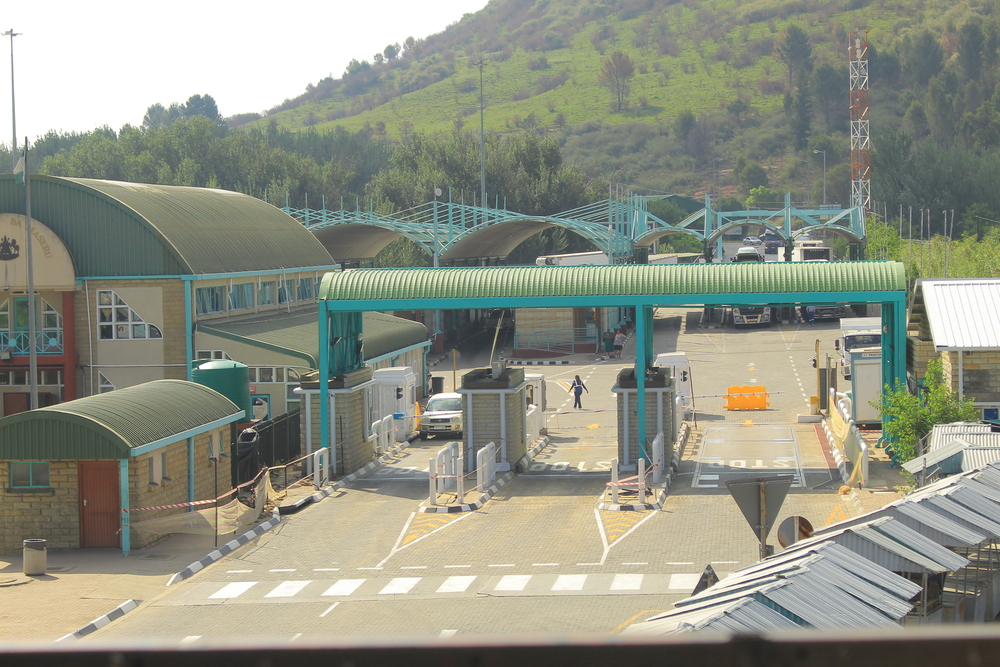
Lesotho’s location makes her to have unique spatial population challenges because in some areas, the border which sometimes others refer to as artificial runs across a village, such that you find a primary school in Lesotho and a high school in South Africa.
It also makes it easier to be in South Africa without having to go through an official border post, because it is far to get to the border post than the town or farm you want to visit. So, while there are 11 official border posts around the country, there are many more unofficial border posts or crossings between the two countries.
The Lesotho diaspora, notably those residing in South Africa, represents a vital component of Lesotho's global community. With historical ties deeply embedded in culture and shared experiences, this diaspora has come to symbolize the enduring connection between Lesotho and its neighbor.
South Africa-Lesotho Bi-National Commission (BNC)
The recent inauguration of the South Africa-Lesotho Bi-National Commission (BNC) underscores the significance of diaspora management in the bilateral relations between the two nations. As Lesotho continues to grapple with the complexities of diaspora affairs, it becomes imperative to dissect and comprehend the multifaceted impact of this dispersed community. This article embarks on a comprehensive exploration of diaspora management, focusing intently on South Africa, and endeavors to unravel its profound implications on Lesotho's political, economic, and international dynamics vis-à-vis its neighbor.
A Critical Analysis of the Diaspora in South Africa
The Lesotho diaspora in South Africa stands as one of the most extensive and influential diasporic communities globally. Spanning across the nine provinces, it encapsulates the enduring historical, cultural, and economic connections between the two nations.
Notably, South Africa hosts a remarkably high number of Basotho diaspora members compared to other countries, underscoring the urgency for customized policies and initiatives.
Being a country completely surrounded by South Africa, Lesotho shares a border with three of the nine provinces - Kwa-Zulu Natal to the east, Free State in the west and Eastern Cape in the South.
In unpacking the ramifications of this substantial diaspora, it is evident that its impact resonates deeply within Lesotho's political, economic, and international spheres.
Politically, it engenders the necessity for bilateral accords and cooperative ventures to address critical issues such as immigration policies, consular services, and safeguarding human rights.
On an economic front, the influx of remittances and the active participation of Basotho individuals in South Africa's labor market serve as pivotal drivers of Lesotho's socio-economic landscape.
The interplay between these multifaceted dimensions necessitates a nuanced approach towards diaspora management, one that balances the imperatives of diplomacy, socio-economic development, and human rights advocacy. As we delve deeper into the critical analysis, it becomes increasingly evident that the Lesotho diaspora in South Africa is not merely a demographic reality, but a transformative force with far-reaching implications.
Key Issues for Discussion
In examining the dynamics of Lesotho's diaspora in South Africa, it is crucial to dissect the key challenges that shape their experiences. These challenges are multifaceted and span across various domains, each carrying distinct implications for the welfare and rights of Lesotho citizens living in South Africa.
First and foremost, the recurrent detainment of Basotho nationals in facilities like Lindela stands as a poignant issue. Located in Krugersdorp, Gauteng, Lindela has been a subject of considerable controversy. It primarily detains undocumented migrants, including a significant number of Basotho nationals.
The conditions within Lindela have garnered extensive scrutiny from human rights organizations. Overcrowding, inadequate healthcare, and reports of mistreatment have raised serious concerns about the treatment of detainees. Addressing the challenges associated with facilities like Lindela is imperative for safeguarding the rights and well-being of Basotho living in South Africa.
The Zama Zama mining activities present another critical dimension to the discussion. Zama Zamas are informal miners who operate in abandoned mines, often under hazardous conditions. This practice involves a substantial number of Basotho men seeking economic opportunities in South Africa.
However, it also poses numerous risks, including accidents, health hazards, and conflicts with formal mining operations. Addressing the Zama Zama issue requires a multi-faceted approach. This includes exploring alternative livelihood options for those involved, improving safety measures within mining areas, and regulating the informal mining sector.
Engaging with the Basotho diaspora in South Africa to understand their motivations for engaging in such activities is crucial for formulating effective diaspora` management policies. Operations in these informal mining establishments seem to be contributing a great deal in the South African economy a market for the gold mines, which seems to not be a problem. Since most of the guys who go to these mines are young and inexperienced, there seems to be a bigger syndicate, which includes experienced people from South Africa and the neighboring countries that have gold mines.
The Migrant Labor System
The historical context of Lesotho's diaspora in South Africa is closely intertwined with the enduring migrant labor system. This complex socio-economic arrangement has deep-seated implications for both countries, shaping the livelihoods and experiences of Basotho individuals who engage with the South African labor market.
For generations, Basotho laborers have played a pivotal role in South Africa's workforce, particularly within sectors such as mining and agriculture. This dynamic has not only provided essential income opportunities for Basotho families but has also given rise to a range of intricate socio-economic consequences. Among these, one of the most poignant is the phenomenon of family separations. As individuals embark on journeys to seek employment in South Africa, they often leave behind families in Lesotho, resulting in fragmented households and intricate familial dynamics.
Moreover, the migrant labor system has contributed to multifaceted social challenges within Lesotho. These challenges encompass a spectrum of issues, including the disruption of traditional family structures, strains on community cohesion, and a nuanced interplay between the socio-economic fabric of Lesotho and its neighbor, South Africa.
Addressing the complexities inherent in the migrant labor system necessitates a comprehensive and context-sensitive approach. It calls for the creation of sustainable employment opportunities within Lesotho, designed to not only absorb the workforce but also to catalyze local economic development. Equally vital is the assurance of equitable wages and dignified working conditions for Basotho individuals engaging in labor across the border.
Study and Work Permits for Basotho
In the intricate tapestry of Basotho diaspora life in South Africa, the acquisition of study and work permits emerges as a pivotal juncture. These legal documents wield immense significance, as they determine access to education and employment opportunities, serving as conduits for integration and socio- economic well-being.
However, the journey towards obtaining these permits is often fraught with bureaucratic complexities and procedural challenges. The process, marked by its labyrinthine nature, can inadvertently become a formidable barrier for individuals seeking to advance their education or secure gainful employment. Efforts to streamline and simplify this critical aspect of diaspora life are paramount. A streamlined and accessible permit application process is not merely a bureaucratic formality, but a linchpin in ensuring that Basotho individuals have equitable access to the educational and economic landscapes of South Africa. This involves not only expediting processing times but also dismantling systemic obstacles that may impede the smooth acquisition of permits.
Moreover, it necessitates a concerted effort to provide comprehensive information regarding application procedures. Clarity in this realm is indispensable, as it empowers individuals to navigate the bureaucratic terrain with confidence. This, in turn, cultivates an environment of inclusivity, where the Basotho diaspora can actively engage in educational pursuits and contribute meaningfully to the South African workforce.
Human Trafficking of Basotho from Lesotho to Neighboring Countries
Within the tapestry of challenges faced by the Basotho diaspora, the specter of human trafficking looms as a deeply troubling and urgent concern. It casts a long shadow over vulnerable individuals, many of whom embark on perilous journeys in search of improved economic prospects, only to find themselves ensnared in the web of traffickers.
The exploitation they face is both multifaceted and horrifying, encompassing various forms of coercion, including forced labor and sexual exploitation. Among those most at risk are Basotho women and children, who find themselves disproportionately vulnerable to the predations of trafficking networks operating across borders.
Addressing this harrowing issue necessitates a united front, with Lesotho and its neighboring countries, particularly South Africa, at the forefront of the fight. The first line of defense lies in bolstering border controls, fortifying the barriers that shield potential victims from falling into the clutches of traffickers. Simultaneously, an intensified focus on law enforcement efforts, coupled with targeted resources and support for victims, forms a critical pillar of the response.
However, the battle against human trafficking is not one that can be waged in isolation. It demands a framework of cross-border cooperation, a collaborative paradigm that transcends territorial boundaries. Information-sharing mechanisms must be forged and fortified, ensuring that intelligence on trafficking networks flows seamlessly between nations. This collective endeavor, underpinned by a shared commitment to human rights and dignity, stands as an unwavering bulwark against the insidious forces of exploitation.
Criminality Perpetuated by Basotho in South Africa: The Famo Gangs
A dark undercurrent in the tapestry of Basotho diaspora experiences in South Africa is the emergence of criminal groups, most notably the Famo gangs. Comprising predominantly of Basotho individuals, these gangs represent a significant challenge, for the broader efforts of both Lesotho and South Africa in fostering security and stability.
The activities associated with Famo gangs range from petty crimes to more serious offenses, including acts of violence. Their presence has been felt keenly in South African communities, where they contribute to an atmosphere of insecurity and social unrest. These criminal elements operate outside the bounds of legal and societal norms, perpetuating a cycle of fear and mistrust.
To effectively address this pressing issue, a nuanced understanding of its root causes is imperative. Socio-economic factors, including limited access to education, economic opportunities, and social support, often play a pivotal role in driving individuals towards criminality. It is a complex interplay of circumstances that compels some within the Basotho diaspora to seek solace and identity within these illicit groups.
The Role of the South Africa-Lesotho Bi-National Commission (BNC)
The recently inaugurated South Africa-Lesotho Bi-National Commission (BNC) stands as a monumental achievement in the diplomatic relations between the two nations. Among its numerous areas of focus, the BNC prioritizes diaspora affairs. It offers a platform for both governments to collaborate on policies and initiatives that enhance the well-being and contributions of the diaspora, particularly those in South Africa.
The BNC possesses substantial potential for addressing enduring challenges and initiating long-overdue initiatives. Through fostering dialogue and collaboration, the BNC can pave the way for more effective policies and programs that serve the interests of both countries and their diaspora communities.
The Future of Bilateral Relations
Looking ahead, the future of bilateral relations between Lesotho and South Africa hinges on proactive measures to address diaspora-related concerns. Bolstering consular services, streamlining immigration processes, and optimizing labor market opportunities are crucial steps. Additionally, nurturing cultural exchange programs and fostering economic partnerships will further cement the ties between the two nations.
The recently inaugurated South Africa-Lesotho Bi-National Commission (BNC) is poised to play a pivotal role in shaping this future. Its emphasis on diaspora affairs offers a unique opportunity for both nations to engage constructively with the challenges and opportunities presented by their respective diaspora communities. By capitalizing on this platform, Lesotho and South Africa can forge a path towards more robust and mutually beneficial bilateral relations.
In conclusion, the main challenges of managing the diaspora could be summed up as illegal migration, undocumented migrants some being children of migrants, difficulty to obtain work permits in South Africa, possessing illegal dual citizenship, marriages and intermarriages as well as fragmented groups or associations.
The management of the Lesotho diaspora in South Africa is a multifaceted endeavor with far-reaching implications for both nations. As the Basotho diaspora continues to navigate the complexities of life in South Africa, it is imperative that policymakers and stakeholders remain attuned to their needs and aspirations.
By addressing key issues such as detention centers, informal mining activities, migrant labor systems, and access to education and employment opportunities, Lesotho and South Africa can unlock the full potential of their diaspora communities.
The recently established South Africa-Lesotho Bi-National Commission (BNC) provides a vital platform for advancing these efforts. By prioritizing diaspora affairs, the BNC signals a shared commitment to harnessing the contributions of the Basotho diaspora for the collective benefit of both nations.
Through strategic collaboration and targeted interventions, Lesotho and South Africa can navigate the evolving landscape of diaspora management and lay the foundation for a more prosperous and harmonious future. This should pave a way for free movement of people between the two countries.
Most Read
New coalition government-in-waiting unveiled

The cooling of the political temperatures came with the BAP joining the bandwagon after a season of political agitation and chess games, reflecting political anomalies in the system of political governance of Lesotho:

A Comprehensive Analysis of Lesotho's Textiles and Garment Sector
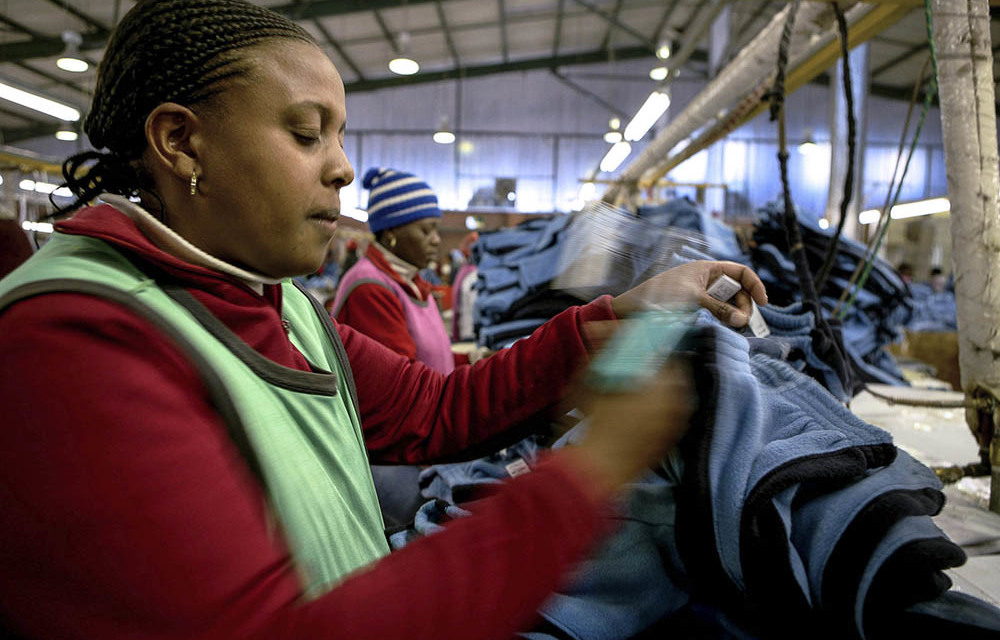
Related Stories
Majoro to grapple with a myriad challenges in his stint - one of them, two centres of power within the ABC
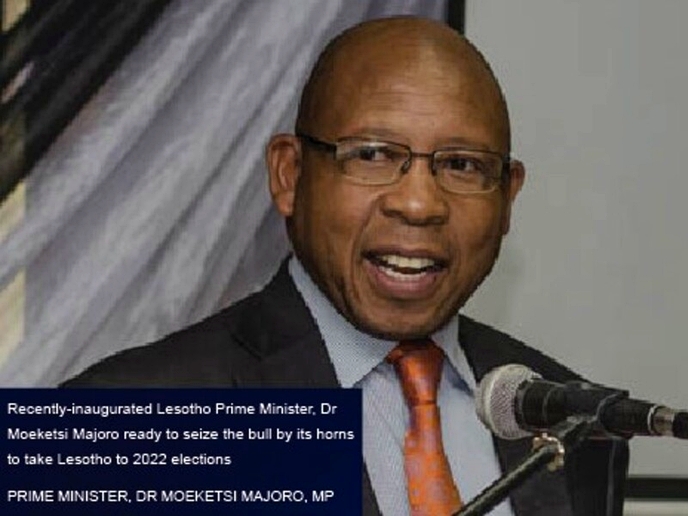
The RFP and its governing partners walk a tightrope on the Local Government Elections
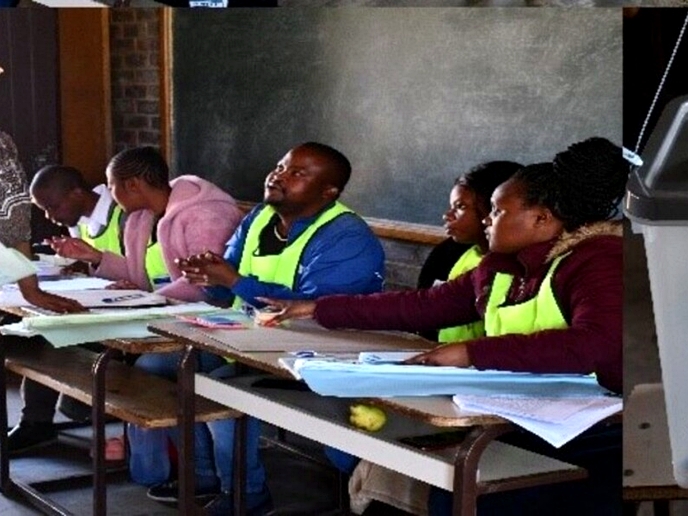
Reforms, Elections and Democratic Stability in Lesotho
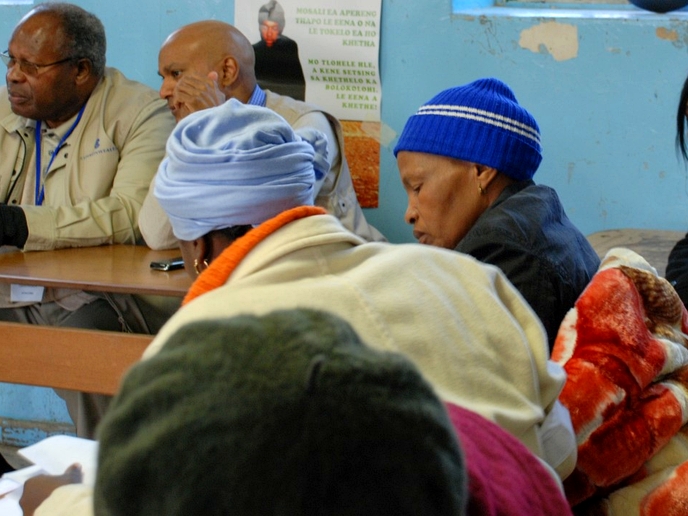
Opinion Vote Polls
Do you think the existing government is going in the right direction to benefit the people of the country?
Subscribe for your daily newsletters
Enter your email to subscribe to our newsletter.
